The Chinese language has contributed greatly to our mother tongue, we cannot deny that. Dating back even before the Spanish colonized the country, Chinese traders have not only given us merchandises from China, they also shared some of their native words to us which we use even today, though some of them are not as obvious as others.
This was the focus of the seminar entitled “Hindi lang Siopao at Ampao: Angpao, Siaolongpao at iba pang Panukalang Salitang-Tsino para sa Pagpapayaman sa Bokabularyong Filipino”, held at the 4th floor AVR of Chiang Kai Shek College – Faculty of Business, Arts, and Sciences Building on August 23, 2013.
The speaker of the said seminar, Mr Joaquin Sy, is a Filipino-Chinese writer-translator who has won 2 Catholic Mass Media awards in 2001 and 2003, the Jose Rizal Award for Excellence in Journalism and Literature from the Manila Times in 2004, the Gawad Pambansang Alagad ni Balagtas from the Unyon ng mga Manunulat sa Pilipinas or UMPIL in 2007, and the National Book Award from the Manila Critics Circle in 2008.
According to Mr. Sy, a lot of Chinese terms can be identified in the Filipino language. In fact, almost 200 Filipino words were derived from the Chinese, and most of them pertain to food and cooking terms, as the Chinese people whom we learned these words from were mostly chefs and cooks from China who migrated to the Philippines. He also mentioned that a great deal of words we acquired from the Chinese are not in the Filipino dictionary. And so he proposed that such terms should be included in our dictionary. Aside from the usual food and cooking terms, we should also include kinship terms (like achi and ah’ia), lucky charms (like angpao and patkua), terms about China and the Chinese (like Hanyu and Huaren), simple greetings (like ninhao and xiexie), main Chinese festivals, Chinese dynasties, and important places in China. Also, let us not forget the word ‘Chinoy’ which is not in the Filipino dictionary, because that word gives Filipino – Chinese people a distinctive identity.
During the open forum, someone asked whether the Filipino people would agree to add Chinese words to the Filipino vocabulary, and what they will do to help people pronounce Chinese words correctly. Mr Sy said that due to globalization, Filipinos will be able to adapt to such addition in our arsenal of terms, and that they are trying to find ways to help people pronounce these words well.
The seminar as a whole enlightened us with the importance of Chinese words in the Filipino language and how it made an impact in our culture.
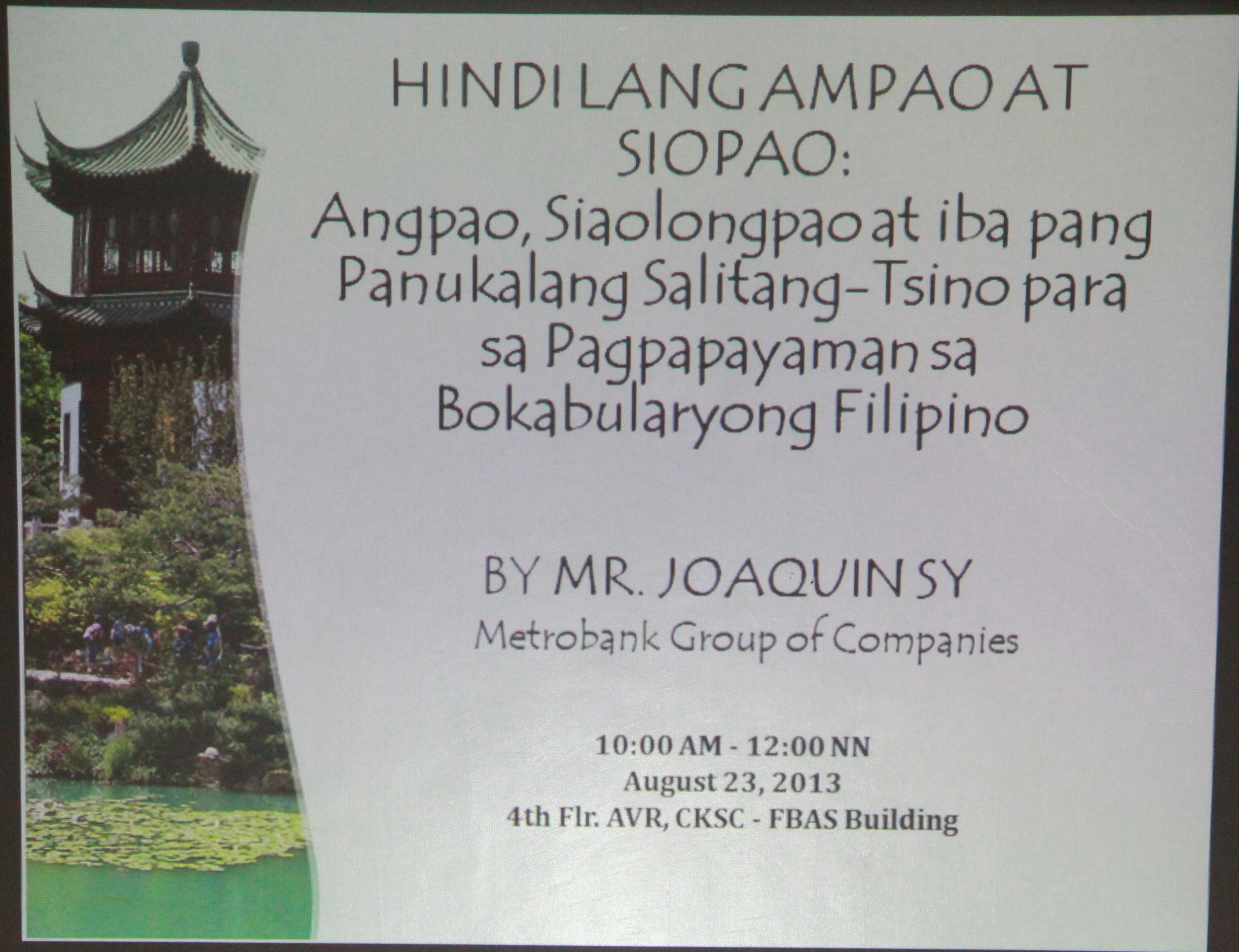 |
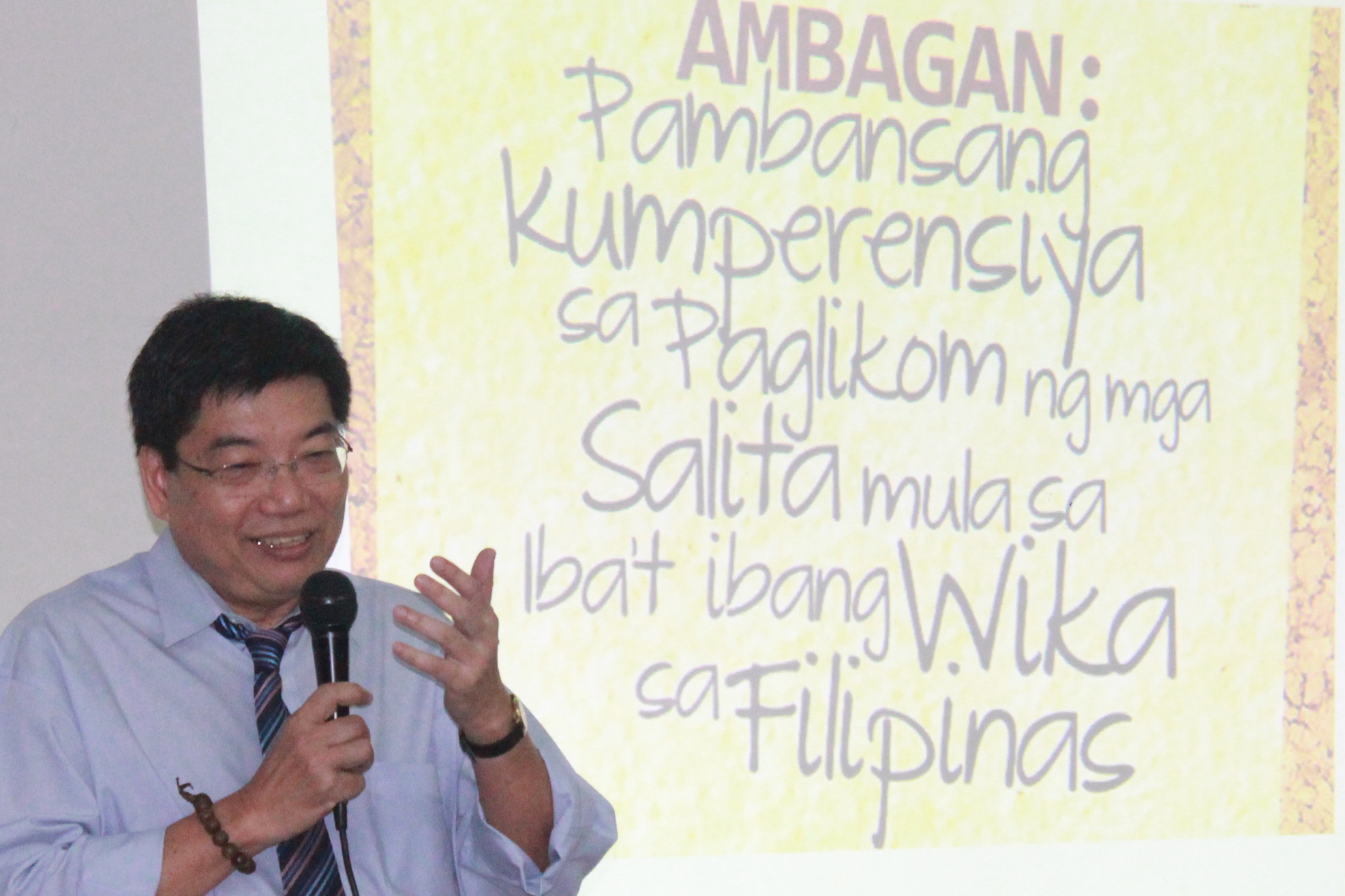 |
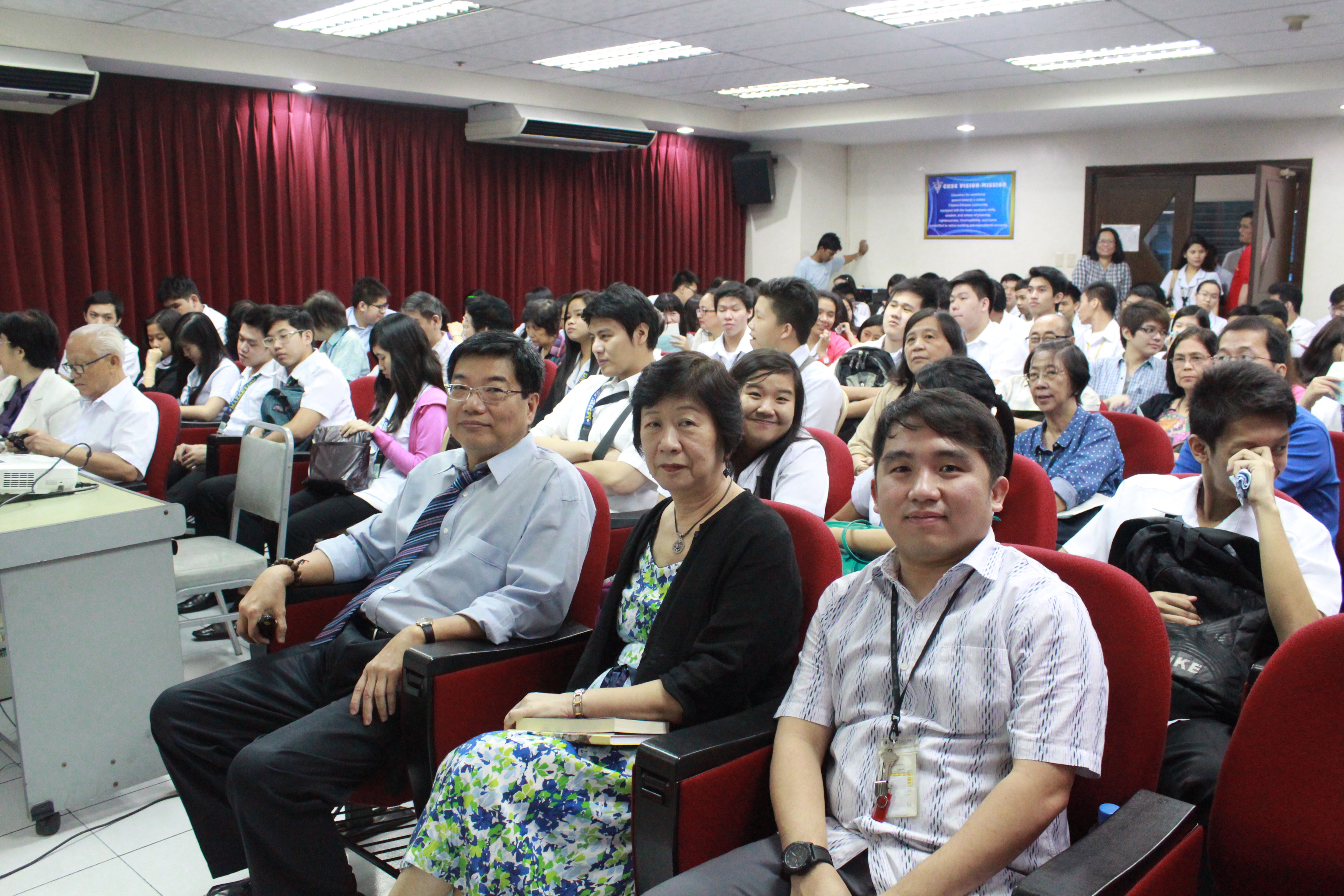 |
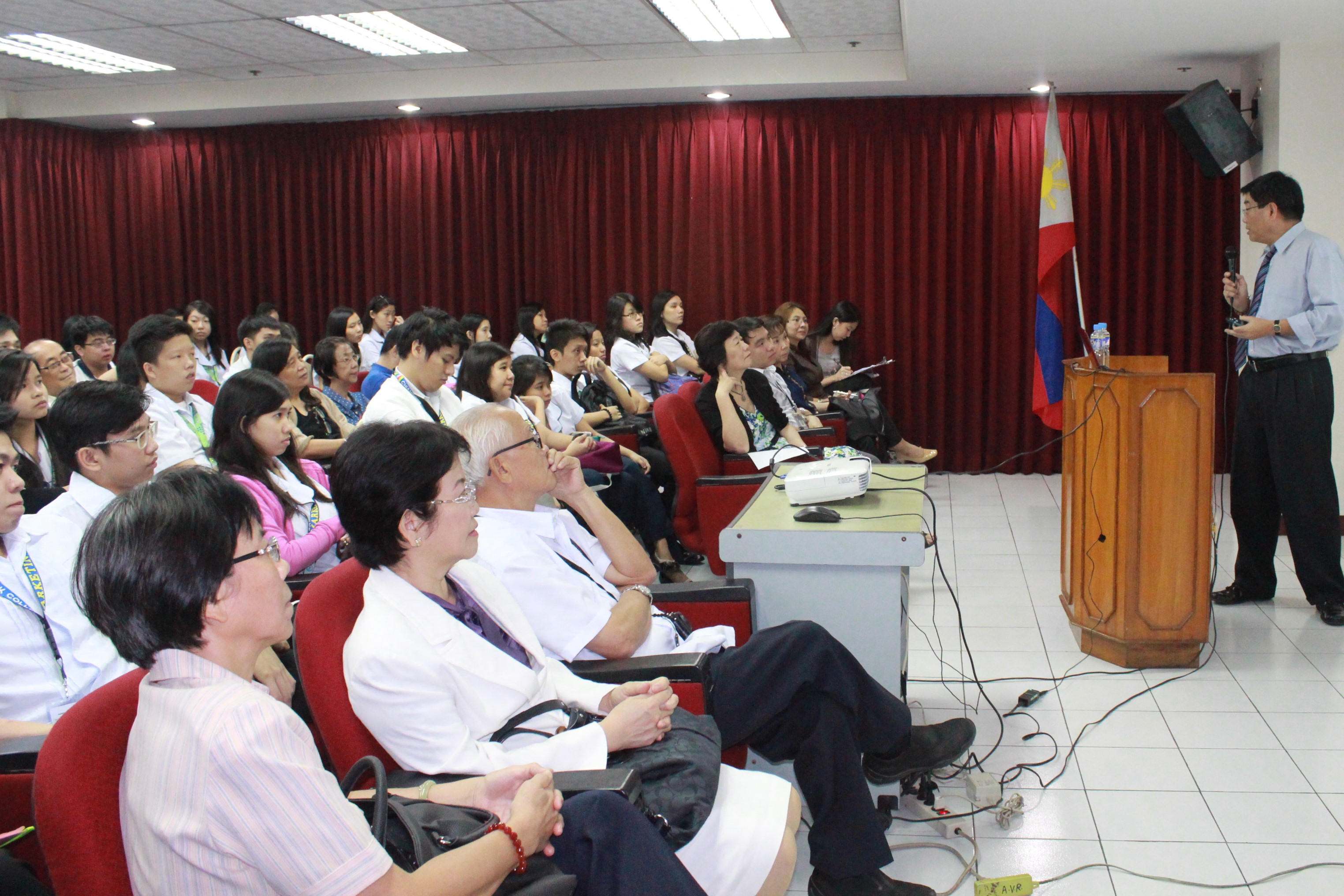 |
 |
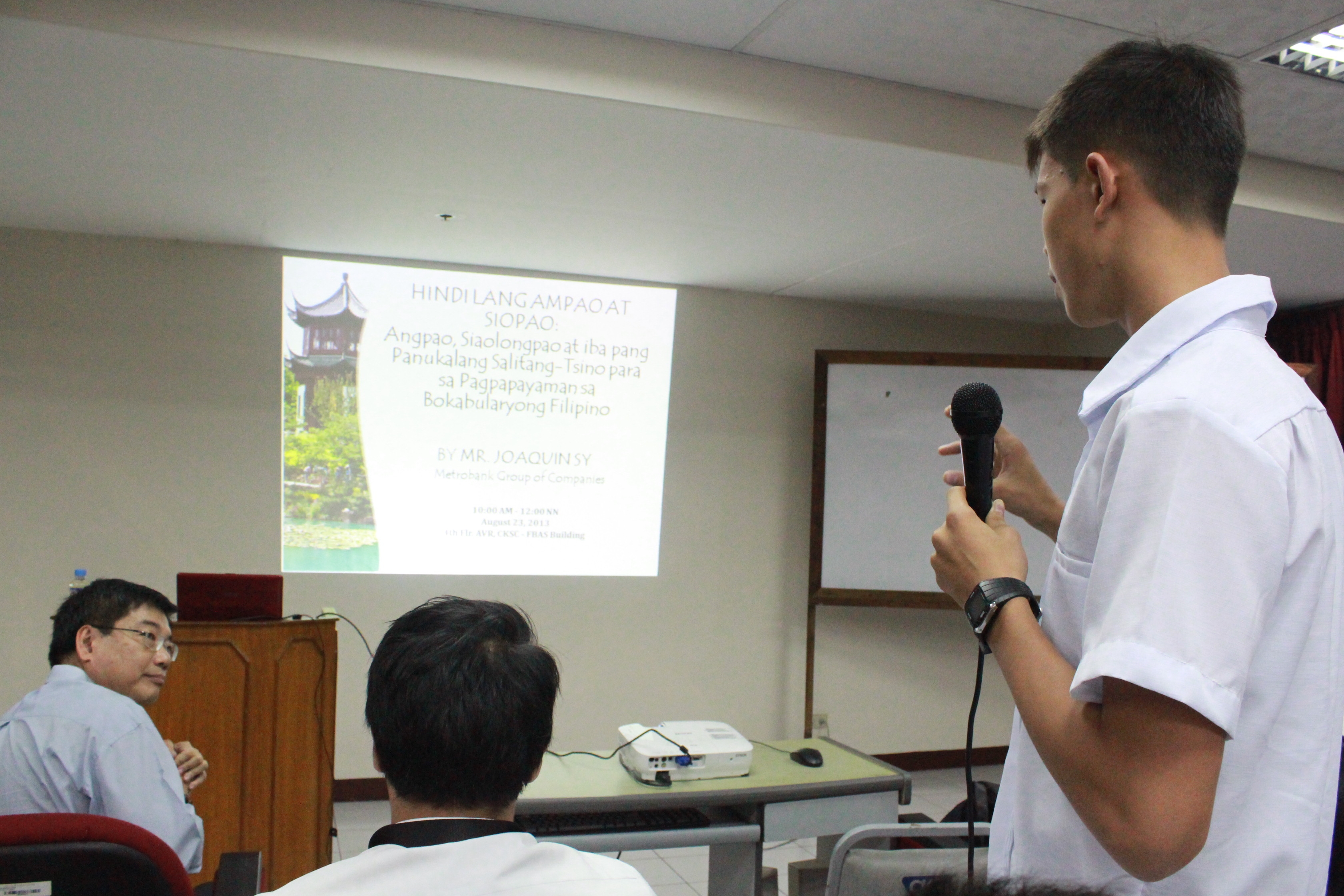 |
 |
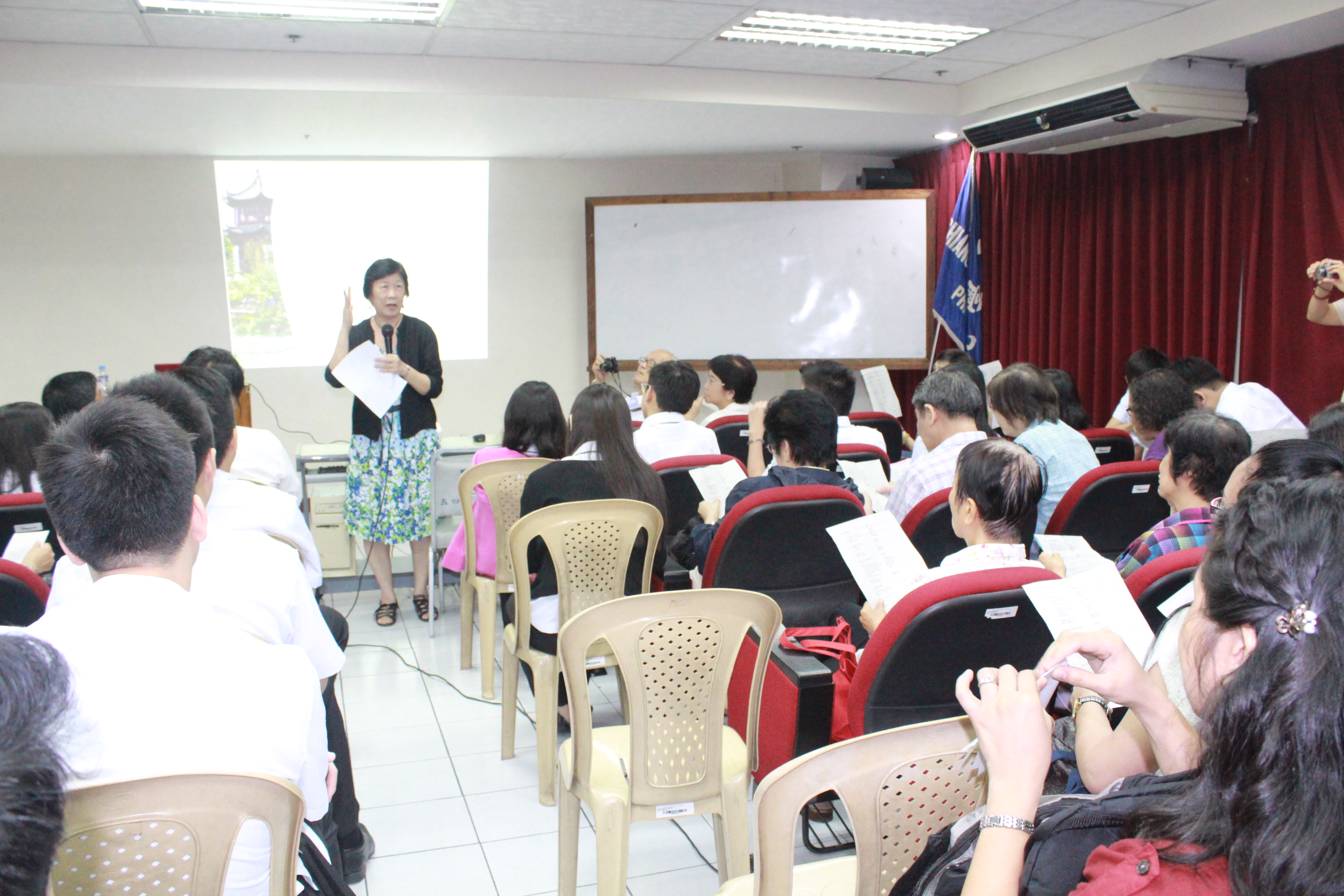 |
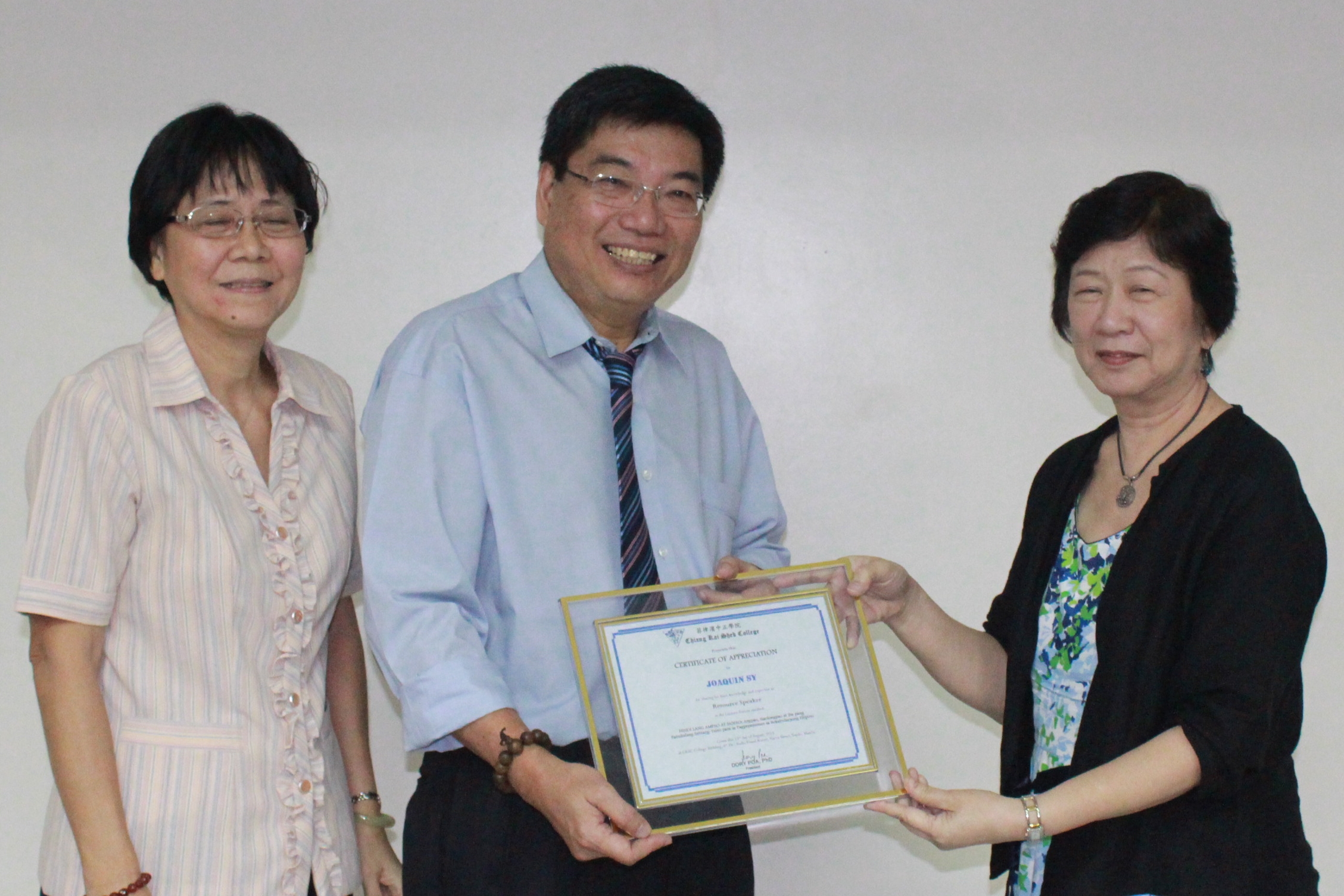 |
 |




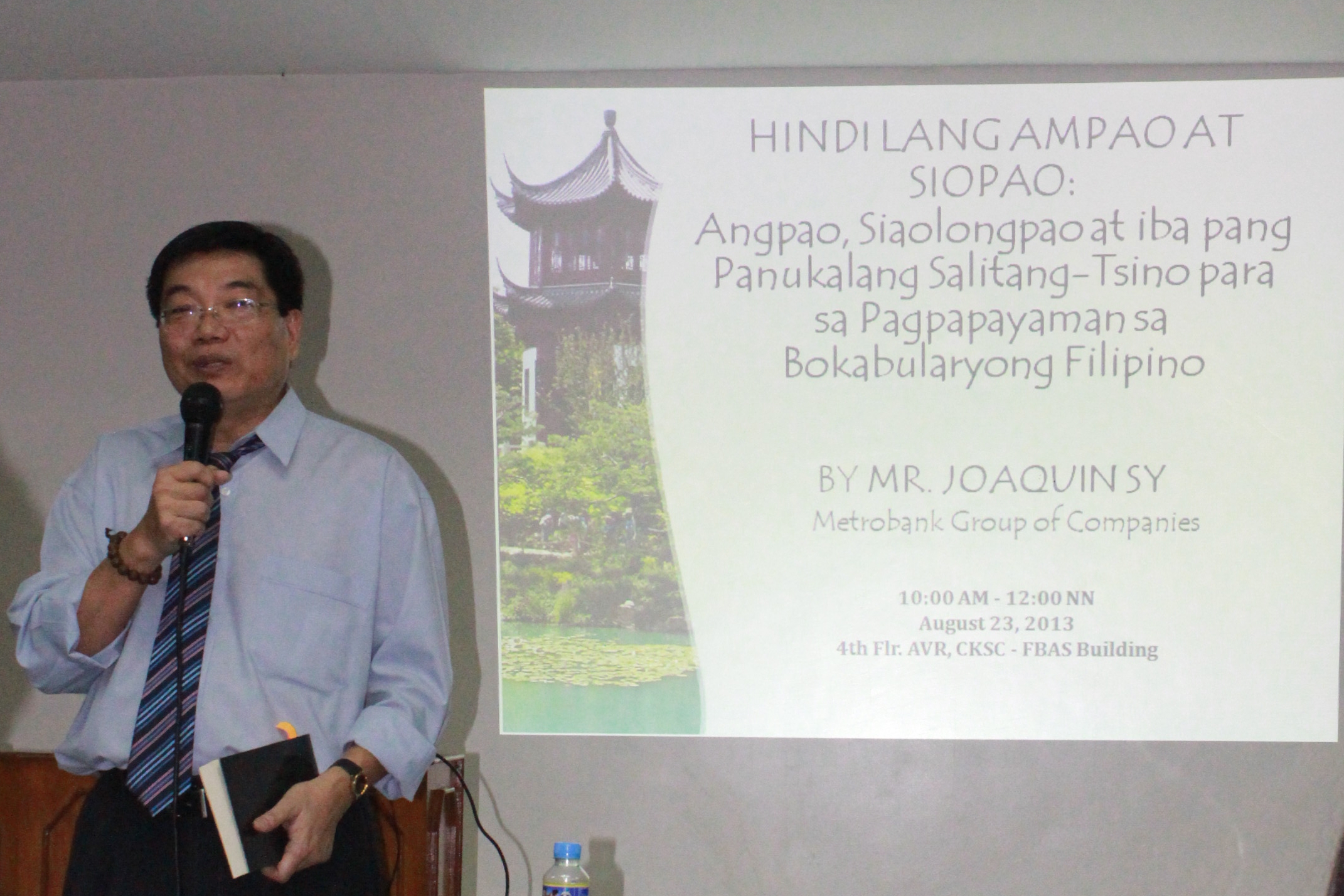
.jpg)

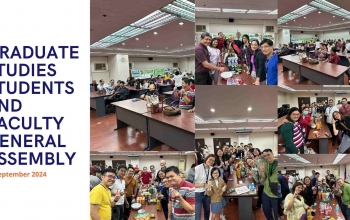


.jpg)
